5 Reasons To Hike Guinea’s Magnificent Fouta Djallon
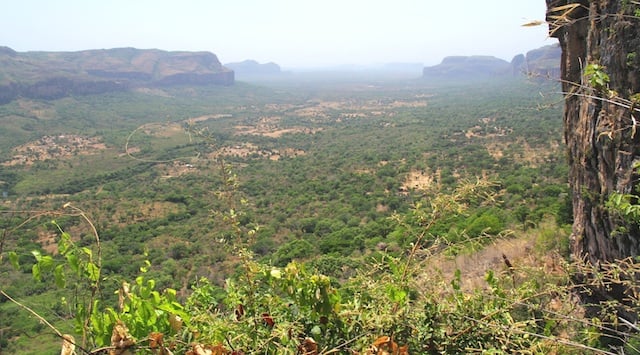 The Republic of Guinea–not to be confused with Guinea-Bissau, Equatorial Guinea, nor Papa New Guinea–may be a country you haven’t heard much about. Tucked snugly in the middle of Francophone West Africa, Guinea is a nation generally known for its painfully inefficient leadership, a startling lack of basic infrastructure, and, presently and unfortunately, a fair bit of ethnicity fueled violence in the capital, Conakry.
However, while electricity, running water and government transparency may be in short supply, Guinea is a truly spectacular country that should not be overlooked. The people are overwhelmingly kind (especially to foreigners), the customs are rather interesting and, if you’re a hiker, it packs a natural treat in the sweeping Fouta Djallon region–and endless playground of canyons, waterfalls, villages and color.
I, Will, just spent nine weeks in this wonderful place. For the majority of the time, I was living with a family in Kankan — a city in the northeast — teaching Spanish to university students and Physics to 7th graders. For the rest I did a bit of traveling, including a five-day solo wander through the aforementioned “Fouta.” In this post, with a few anecdotes from my personal experience, I give you: 5 reasons to go for a hike in Guinea’s magnificent Fouta Djallon.
The Republic of Guinea–not to be confused with Guinea-Bissau, Equatorial Guinea, nor Papa New Guinea–may be a country you haven’t heard much about. Tucked snugly in the middle of Francophone West Africa, Guinea is a nation generally known for its painfully inefficient leadership, a startling lack of basic infrastructure, and, presently and unfortunately, a fair bit of ethnicity fueled violence in the capital, Conakry.
However, while electricity, running water and government transparency may be in short supply, Guinea is a truly spectacular country that should not be overlooked. The people are overwhelmingly kind (especially to foreigners), the customs are rather interesting and, if you’re a hiker, it packs a natural treat in the sweeping Fouta Djallon region–and endless playground of canyons, waterfalls, villages and color.
I, Will, just spent nine weeks in this wonderful place. For the majority of the time, I was living with a family in Kankan — a city in the northeast — teaching Spanish to university students and Physics to 7th graders. For the rest I did a bit of traveling, including a five-day solo wander through the aforementioned “Fouta.” In this post, with a few anecdotes from my personal experience, I give you: 5 reasons to go for a hike in Guinea’s magnificent Fouta Djallon.
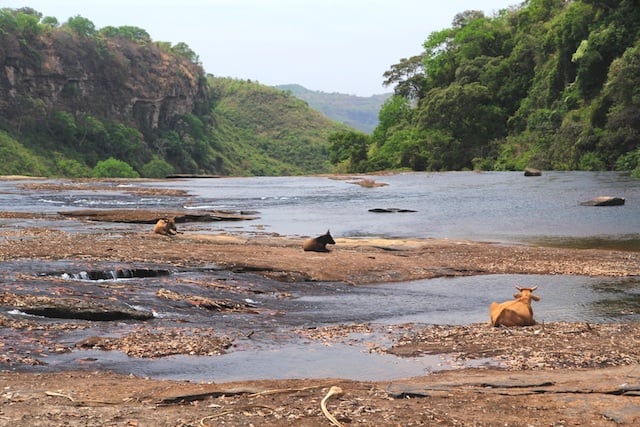
1. The Landscapes Are Stunning
While the Fouta Djallon couldn’t be said to pack one singular, Hollywood highlight, the vast region is, simply and uniformly, stunning. Endless mango trees, papaya trees, and orange trees paint the scene, while innumerable waterfalls line the edges. Rounded peaks give texture, while villagers in glowing, sequined, technicolor dresses provide personality. Footpaths, winding and amber red, cut through the lush green forest, and a pervasive quiet, punctuated only by a passing bird or the friendly call of a villager, lays the perfect soundtrack. In two words, the Fouta Djallon is exotically bucolic, and best of all the scenery doesn’t end: the whole region is stunning just the same.2. Sleeping Is An Adventure
Whether with a guide or without, Fouta trekkers, for the majority of the region, only have two real options for passing the night: sleeping in local villages or camping in the wild — a veritable adventure either way. If you do choose to hire experienced help, your guide will arrange for you to sleep in villages: a basic cement and thatch hut will be provided or, at the very least, a space for you to set up a tent. Conversely, If you choose to go alone, you’re left to conjure whatever charm, wit and shining smile you may have in an effort to secure the very same thing. During my hike, I had the strong fortune of landing, in order: a small patch of dirt on which to set up my tent next to two unnervingly hectic bee hives (“don’t worry, they won’t sting–they’re ‘working,'”I was assured); prayer-rug floor space in the home of a particularly devout holy man with whom I mostly chatted, over coffee and peanuts, about how much of each day he devotes to prayer; a small hut, with a roommate who generously offered to fetch me a dinner of bread and sardines just after the sun set, and then returned empty-handed roughly three hours later; and lastly, a private room in the house of the village chief, complete with a king-sized bed and a mattress that wasn’t made of straw. Regardless of the level of hiking independence you choose, fear not: the villagers are tremendously kind, thrilled to have your in their midst and will usually bend over backward to ensure your safety and comfort. Do bring a tent though–just in case!3. Mangoes, Oranges, Avocados, Oh My
The Fouta is packed with fruit. The seasons for each don’t necessarily overlap, but irrespective of month, you will be privileged to a healthy supply of excellent produce. It’s filling, good for you and in the pressing heat of a West African afternoon, makes for a nice source of fluid. On my trek, it was orange season. “Can we bring you some oranges?,” the village children would ask. Minutes later, I’d have fifteen at my feet. I must have eaten over a hundred in five days.4. Practice Your Pular, Make New Friends
The Fouta Djallon covers an area inhabited predominantly by Peuls, one of three dominant ethnic groups in Guinea. The language spoken is Pular, and knowing just a bit — phrases like “hello,” “how are you” and “how’s the family” — will go a long way with local villagers. At the very least, it’ll earn you a broad smile. At most, it’ll earn you a hot meal and a place to sleep. And in some cases, as French is only learned by those who attend school, it’ll be your only line of communication. On the second day of my hike, armed with a strong command of only English and French, I realized that, without a Pular-fluent friend, I might often find myself at a loss for words. So, I sent a quick text to my friend in the Peace Corps, who kindly responded with a nice cheat sheet of useful phrases. At first, I held short conversations with the text message open in front of me, but after a while, I got the hang of it. The following day, after greeting a large group of children in Pular (of which only one ended up speaking any French), I was invited into their home. And after a much needed snack of bananas and oranges, I implored to assume the role of team photographer. Here’s a few shots of the friends I made: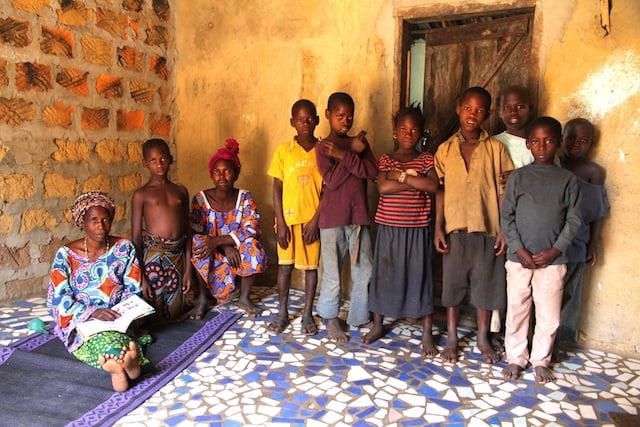
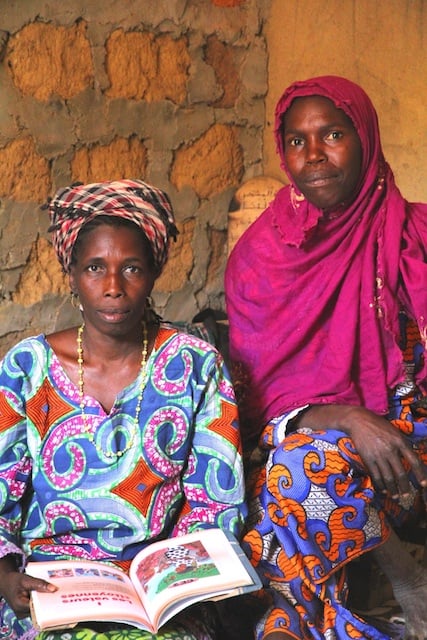 So, before your hike, learn a bit of the local language, so as to make your trip all the more enjoyable. Jaarama!
So, before your hike, learn a bit of the local language, so as to make your trip all the more enjoyable. Jaarama!
5. It’s Perfect for Improv
When hiking independently in an area you don’t know, there’s a few things you’d really like to be in place. Most crucially, you’d like food and water to be readily available, unless you’re planning to carry all of your own. In addition, you’d like to have locals to consult for directions, unless you’re planning to rely solely on a map. Finally, you’d like some trails to exist, unless you’re planning to machete your way through virgin forest. In the Fouta Djallon, there’s all that and more. The region is Guinea’s most populous, and where you find a village — you’re sure to pass several every day — you will find food and water. Second, the locals are always roaming about, happy and willing to offer directions. Third, there are plenty of trails on which to walk, all trodden daily by villagers moving from one locale to the next. If they can navigate the paths, with a bucket full of bananas resting on their head and a baby on their back, well, so can you. With endless potential accommodation, friendly locals and a never-ending Eden of fruits and vegetables, the Fouta Djallon is tailor-made for solo trekking. In addition, if you go outside of the rainy season, blue skies and a glowing sun are all but a statistical certainty. So, if you’re a hiking enthusiast, for the above five reasons and many more, give Guinea’s Fouta Djallon a try. You’re sure to have an experience just as pleasant as the crashing waterfall ahead, or the looming mountain of oranges at your feet. About the author: Will is a 23-year-old from Philadelphia, currently 14 months into his 26-month round-the-world. He currently writes from Freetown, Sierra Leone, and will move his travels to Asia shortly, beginning with a summer-long bike trip across the ‘Stan’s. Follow his stories, photos, and philosophical musings at Will’s Blog of Travel and Life.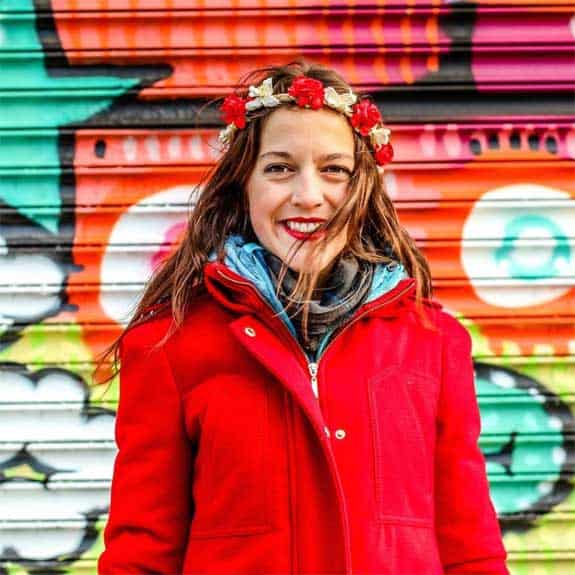
Hi, I’m Jessie on a journey!
I'm a conscious solo traveler on a mission to take you beyond the guidebook to inspire you to live your best life through travel. Come join me!

Want to live your best life through travel?
Subscribe for FREE access to my library of fun blogging worksheets and learn how to get paid to travel more!


Sounds like an incredible experience. It’s always great to learn a little bit about countries I’ve never even heard of 🙂
That’s always my favorite, as well. Definitely adds some mystery and excitement 🙂
Where did you start your travel from before you made it to your destination? I am trying to figure out the best route.
@Shay: This was a guest post, so I’m not 100% sure. You might try reaching out directly to the author.
This looks stunning. Never really considered Guinea as a travel destination, but I think I need to add it to my bucket list now.
Finding new and unexpected travel destinations is always the best 🙂